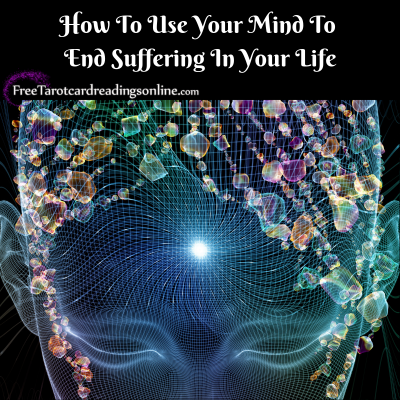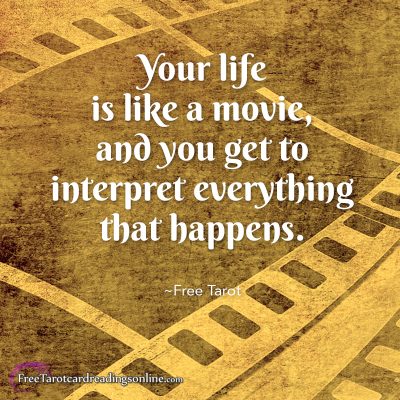 Come on, can you really use your mind to end suffering in your life? That probably sounds a bit gimmicky. But we’re not talking about a secret magic trick that makes your troubles disappear in a poof.
Come on, can you really use your mind to end suffering in your life? That probably sounds a bit gimmicky. But we’re not talking about a secret magic trick that makes your troubles disappear in a poof.
Instead, we’re talking about your mind. And how you can use it to create or eliminate suffering. It all depends on you. Most people want to end suffering. And it’s safe to say that you do, too. So, let’s explore this concept together, shall we?
Suffering and pain are different
We often think of pain and suffering as interchangeable, but they’re not. And the easiest way to distinguish them is in the words of M. Kathleen Casey, who said
“Pain is inevitable. Suffering is optional.”
Or, we could also say pain is objective, while suffering is subjective.
Pain comes in many different shapes and forms. It happens physically when you stub your toe. It happens emotionally when you feel rejected by someone. Pain happens spiritually when you feel lost and disconnected from the Highest Source. It happens mentally, when chemicals, hormones, and neurotransmitters are imbalanced and they create disturbed thinking patterns.
So, pain happens to us and disrupts our wellbeing. But if we start to confuse pain with suffering, we seriously limit ourselves and get stuck in a victim state.
Where does suffering come from?
Anything and everything can happen to us, and many of these things can cause us pain. But we begin to “suffer” when our mind gives these events a negative interpretation.
Let’s compare this to watching a movie. The movie, in and of itself, is separate from you, and you get to decide whether it’s a good movie or a bad one. You might give it five stars, but your friend might only give it one or two.
In other words, the movie is objective. But how it is – whether it’s good or bad – is subjective. And that depends on the interpretation and rating you give it.
Now, imagine that your life is a movie. Things happen in a certain way, and people behave in a certain way. And you get to interpret and rate everything that happens. How other people behave, how people treat you, and how the story develops and evolves – it’s all going to happen. But what isn’t left to chance is how you think about these things.
You interpret what happens in your life. So, if someone or something causes you pain, you can think about it in a way that causes you more pain (in the form of suffering). Or, you can choose to see it differently.
The key takeaway here is that we are the only ones who can interpret and assign meaning to life’s events. Pain is inevitable. It will happen as part of the human journey. But you get to decide to add suffering to the mix, or not. That’s how powerful you are.
Forgive yourself
Suffering is optional. But that’s not to say that if you suffer, it’s your fault. Blaming and shaming ourselves only creates more suffering. Instead, could we entertain the idea that if there is suffering, we have been involved? Could we entertain the possibility that the meaning we assign to life events contributes to our suffering?
Realizing our involvement is eye-opening. It helps us see that we can reduce or eliminate suffering by changing our thoughts. But this realization can also have an opposite effect.
Instead of feeling freedom and awakening, we can feel discouragement at the fact that our minds are implicated in so much of our own suffering.
But watch out! That’s the booby trap we just figured out how to escape from. Don’t assign blame and shame to this learning moment. That will only create suffering.
Instead, look at this realization and say, “Even though I may have created suffering in my life, I completely love and accept myself.” In other words, hold yourself in love and forgive yourself.
3-minute mindfulness practice
So, if you want to use your mind to end suffering, the first step is forgiving your mind for contributing to your suffering in the first place. Our minds are very good at making mountains out of molehills, or catastrophizing small slights, or coming up with Hollywood level worse-case-scenarios. That’s what our mind does, and it does it very well.
We’re very good at taking something painful and making it even more painful. But what are you supposed to do next? No one will be able to end suffering immediately. That’s impossible. So, don’t even bother setting that expectation for yourself. You’ll only set yourself up for failure.
Instead, start practicing this 3-minute mindfulness practice. It’s a short practice that helps retrain your mind to be more aware. And the more you grow in awareness, the less you’ll interpret things so negatively. Then, you’ll stop adding suffering to your life, too.
Here’s what to do:
- Sit quietly for 3 minutes (set a timer on your phone)
- Keep your awareness on your breath
- If a thought or feeling comes to mind, that’s okay
- Don’t identify with your thought or feeling. In other words, don’t say “I am confused” or “I am ashamed.” Instead, say “Confusion is here” or “Shame is here.”
This simple separation helps you stay aware of what’s happening without becoming what’s happening. If you commit to doing this simple 3-minute practice every day, you train your mind to remain calm and collected when pain arises. In other words, you can observe the pain, without creating suffering.
Ask questions
Developing present-moment awareness will help you make significant shifts and reduce suffering. But awareness takes time to cultivate just like flowers in a garden. So, while you’re tending to your own unique flower bed, here’s a simple tactic that can prevent suffering from snowballing out of control.
When you feel pain, ask yourself simple questions. When you do, you challenge the negative thoughts that usually spiral out of control.
Here are some questions you can ask yourself:
- Why does this make me feel (fill in emotion)?
- Is there evidence that my thought is true?
- Is there evidence that my thought isn’t true?
- Is what I’m thinking an opinion or a fact?
- What is the lesson my soul can learn from this?
- Am I attached to an outcome? If so, can I entertain the idea that there is a better, greater outcome than the one I’m attached to?
- Am I taking this personally?
- Have I thought this thought before?
- Can I control this?
- Am I blaming anyone?
- Am I comparing myself to someone else?
- Am I being true and authentic to myself?
When you ask yourself these questions, you can observe what’s really going on, rather than getting stuck in a victim state. And these are questions we can continue to ask as we practice becoming more aware.
Pain may be inevitable in our human experience. But suffering isn’t. Our thinking mind can add suffering to what is happening. But remember: it is your mind thinking negative thoughts, and you can step in and think different thoughts.
With present-moment awareness, you can decide to observe things and therefore, interpret things differently.
You can choose to limit suffering or eliminate it altogether. Isn’t that great news?
Still, need assistance with suffering in your life then click on the link below for some insight…
Get a LIVE READING Right Now -> Free Minutes!
(Remember, you get Free Minutes on your first reading.)

